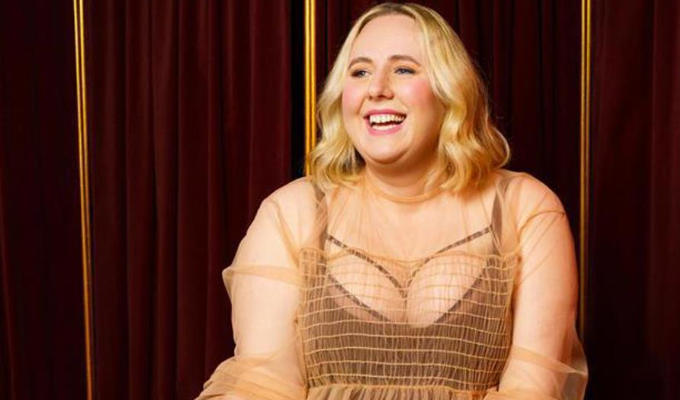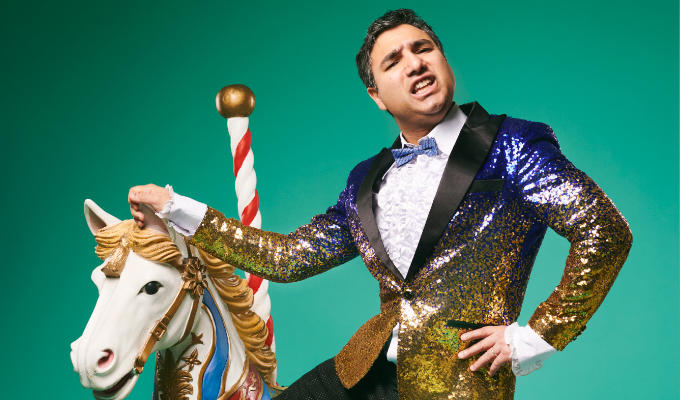The Office vs. The Office
Lorcan Mullan says comparing the two is like stapling jelly to a noticeboard
In 2003 Ricky Gervais and Stephen Merchant called an end to their three-year, 14-episode run of The Office. NBC have just aired the last episode of the final season of The Office: An American Workplace, after nine years and 201 and one episodes. To compare the two is as redundant as ranking a Shakespearean sonnet against his entire Histories cycle. But compare them I shall. The Office, I mean, not Shakespeare.
They both completely rocked their respective comedy spheres. After the British original, the comedy of embarrassment, under-stated pseudo-realism and post-Alternative ‘ironic’ offensiveness became even further emboldened from the earlier successes of I'm Alan Partridge and People Like Us. The studio audience sitcom already had its detractors and to this day it's unfairly perceived by many as an inferior, as opposed to alternative, medium. The oft-proffered tastes of Gervais became the de facto opinion of choice in many column inches and reviews. A quote for Stewart Lee's Stand-Up Comedian poster, and a hearty recommendation of Louis CK, were major (but not definitive) reasons for both men's subsequent boost in popularity.
After a shaky start in the ratings, the American remake became a solidly popular show for a network that has struggled to find an audience since the glory days of Cheers, The Cosby Show, Seinfeld, Frasier and Friends. It has acted as a launching pad for the varyingly successful movie careers of Steve Carell, Craig Robinson, Rainn Wilson and Ed Helms. The mock documentary style has become a sub-genre within American television with the likes of sort-of spin-off Parks and Recreation and ABC's ratings and award-gobbling behemoth Modern Family.
The collective rolling of eyes, from viewers and critics alike, on both sides of the Atlantic when the remake was first announced led to a collection of moans, groans and articles that reminded us all of various catastrophic Stateside re-tools of Fawlty Towers, Dad's Army and, most recently, Coupling in an attempt to decry the Americans for failing to get our oh-so British sense of humour that makes us better than everyone else in the history of ever.
We chose to ignore the fact that Til Death Do Us Part, Man About the House and Steptoe & Son were all translated into mega hits, and at least two genuine classics, in All My Family, Three's Company and Sanford & Son. The failure-to-success ratio of British-to-American sitcoms is about as low as original US creations. They're certainly more frequently successful than our attempts, such as Brighton Belles (The Golden Girls) and Married for Life (Married with Children). Our most popular translation was probably that ITV classic The Upper Hand (Who's the Boss?). Maybe we just never got their oh-so American sense of humour.
The biggest mistake the US Office made was trying to replicate the British version. The pilot episode isn't allowed the time to adequately convey the daily grind thanks to its much shorter length compared the UK original, and regular commercial breaks meant those quiet moments of printers whirring and coffee stirring had to be quickly jettisoned. Plots seemed to evolve naturally over a boring day of work at Wernham Hogg; in the remake there had to be A, B and C stories crafted to intersect, pay off within 22 minutes and provide appropriate cliffhangers before each commercial breaks.
The truncated six-episode first season had moments of potential, but the low-key atmosphere felt oppressive to the natural energies of the actors instead of an evocative representation of dull office life. The rigidity of the British formula worked so well within its six-episodes-per-season run, but for the show to become a success in the States it had to spread its wings.
The breath of fresh air that is the second season opener The Dundies (the first example of the show crafting its own internal mythology with an annual awards ceremony acting as Michael Scott's attempt to play Bob Hope) paved the way for a stellar three-year run that included many classic episodes and nary a duffer. I fought a losing battle against the cynicism of those who may have watched the pilot, if that, when I said the show had become very good. The cynicism turned into all out incredulity when I suggested it may have even surpassed its predecessor.
It not only found its own (more fast-paced and screwball) voice, it showed an ambition of scope and depth in world-building that the British never attempted. A criticism I've always had towards Gervais and Merchant sitcoms, and this extends to most other sitcoms, is that ethnic minority characters are either non-existent or dull, coloured sounding board for the leading white man to mine laughs from ironic/unintended racism.
In the second ever episode, when the show was still beholden to the British cringe humour as its main source of laughter, staff writer Mindy Kaling appeared on-screen for Scott to bounce a series of insensitive racial slurs towards her Asian heritage. Whilst Kaling's Kelly Kapoor first existed as a one-note vehicle for the white male lead, and a group of predominately white male writers, the number of episodes that needed to be filled allowed her to become a series regular with her own unique personality (an absurd level of celebrity obsession) and her romance with fellow cast member and writer BJ Novak acted as a deformed mirror to the high-stakes romances the rest of show's characters experienced.
Only Brent, Tim, Dawn and Gareth were allowed talking heads interviews throughout the British series. In the American version the dozen or more characters that worked in the office were given plenty of interviews, storylines and narrative arcs. They fell in love, got married, fell out of love, had affairs, got divorced, had health scares, were promoted and demoted.
The paper industry, merely a setting for the British original, was regularly used as a source for plots. Episodes were based around sales calls, trade fairs and the perils of 'find and replace' in Microsoft Word. Entirely new characters were created throughout the show and nearly all of them were wonderfully realised. There was Ed Helms's mercurial Andy Bernard (probably a closer translation to David Brent than Michael Scott), Ellie Kemper's charmingly naive Erin, Craig Robinson's sardonic but vulnerable Darryl (who allowed the warehouse to become more than the home of the crass working classes at Wernham Hogg) and more than a half dozen more that left the show spoilt for choice.
What let the show down was the cash cow nature of American sitcoms and the gradual loss of steam that nearly every US show suffers when it runs past the hallowed syndication-ready goal of 100 episodes. The shark wasn't jumped so much as gradually wheezed to a near-death halt.
Carell's departure towards the end of the seventh season left the show often resembling a shuffling corpse. Any attempt at rejuvenation with new cast members failed almost at conception. The inconsistent Robert California character, played by the supremely talented James Spader, was a totem for nadir that was the eighth season. The writing team seemed to lack the confidence or conviction to dive into unchartered water after any initial dip of the toe. The less said about the pointless addition of Catherine Tate the better.
Having Michael Scott's managerial position filled by Andy Bernard was a stroke of cowardice. The most Scott/Brent-like character that remained, who just happened to be played by the star of an unlikely cinematic mega-hit, meant that fascinating new avenues (Darryl rise from the blue-collar warehouse, Jim making the final dreaded leap into inescapable responsibility, Dwight's descent into madcap dictatorship) were ignored in favour of what would hopefully keep the status quo and maintain the show's decent ratings. They fell nearly as sharply as the critical opinion.
What had once been a strength now seemed to be a weakness. A dream team cast now started to look like a bloated, waddling mass of actors/producers/writers with no hunger to continue to push things forward, and instead just cashed the cheques and kept the creaking gears in motion. The lack of focus is best represented by the season eight DVD cover; over a dozen characters are crammed together with no clear focal point.
The continued cycle of annual renewal and iron-clad contracts meant that no other actor, and therefore no character, could have a heroic escape to match the touching 'Goodbye Michael' episode. The show started to represent the drudgery of the real workplace.
Tim and Dawn's Christmas party kiss and walk into the sunset, or at least the staff room for some more kissing, allowed a fantasy 'happily ever after' ending for our own imagination. Jim and Pam's first kiss and eventual pairing (in both instances born from Jim's prerogative as opposed to Dawn's) were followed by a sweet romance, a tender double wedding and two beautiful children, before it fizzled into character-dulling domesticity. It may have been a more realistic portrayal of a healthy relationship, from birth to plateau, but season eight Jim and Pam unintentionally reminds you of boring, married couples who were once young, sexy and full of life.
The ever-widening differences in the two shows is never more obvious than in their respective finales. They both take place a time after the airing of the documentaries. The absurd conceit that Dunder Mifflin had been filmed for nine years by a PBS crew was another example of the faults inherent with a remake born from a parody of the short-lived docusoap craze of late 90s British TV.
The British documentary was barely watched and no one had been happy about their portrayal. The American characters thanked those that filmed them for providing them with a document for their lives, and had a triumphant Q&A session in front of a sold out audience. In their Christmas special Gervais and Merchant wrote a story's conclusion; Daniels and his team of writers penned an emotional farewell to themselves and the friends they had acquired over nine long years.
Brent, Tim, Gareth and Dawn were both well-realised characters and ciphers for a philosophical stance Gervais and Merchant have made throughout all of their work together - don't waste time because life's too short. It's my theory that Tim and Dawn represented how Gervais and Merchant hoped that they themselves were like at their best, and Brent and Gareth were what they feared they were like at their worst. I don't think anyone in the cast had a clear link to the writers and became, if anything, extensions of the actors' own personalities.
Tim and Dawn loathed their job, barely tolerated Gareth and pitied Brent. Jim and Pam were amused by, and grew to love, Dwight and Michael, and struggled to hold back the tears as they looked for one last time at that bland boxy building in the middle of industrial Pennsylvania. Gervais and Merchant took pains in the special to show that life would go on at Wernham Hogg, and whilst Tim and Dawn's romance was a happy one there were other unrequited loves that would never be resolved. Almost every character in the American show ended partnered off, happily retired or content to continue the life they had before and after the cameras were rolling, Wernham Hogg represented purgatory, Dunder Mifflin became a sanctuary.
So, were many people's prejudices confirmed and the British original will always be the superior portrayal of nine-to-five office life? If we were to base it on quality divided by number of episodes then they are correct.
I think I was right at the start of this article. Comparing the shows was a fruitless endeavour. Perhaps a better analogy than my earlier Shakespearean suggestion would be to consider The Office as Robert Altman's M*A*S*H* and An American Workplace as the Alan Alda-starring spin-off.
Gervais and Merchant essentially provided a mini-series with a clear beginning (series one), middle (series two) and end (Christmas special). Greg Daniels and his ever-changing team of writers and show runners had to carefully unravel an indeterminate number of episodes, that could run for more than three days if you played them all from start to finish, and hope that they could tie it all up in a bow as if it was what they'd always intended. I can't really take this comparison further because I've never really watched M*A*S*H*. It is on my 'to watch' pile, so get off my back, Dad!
What did both shows end up achieving in their finales? They both moved me, but for completely different reasons. They both provided fitting endings to shows that will both rank amongst the best shows to come out of the greatest decade (so far) of quality television. They represented some of the best (and worst) aspects of British and American television. Most importantly, they both offered me an escape from my often dreary working life, and could be relied upon to provide a many good laughs in nearly every episode.
Isn't that kind of the point?
- Lorcan hasn't quite finished waffling, but in the meantime you can follow him on Twitter @lorcanmullan
Published: 22 May 2013






